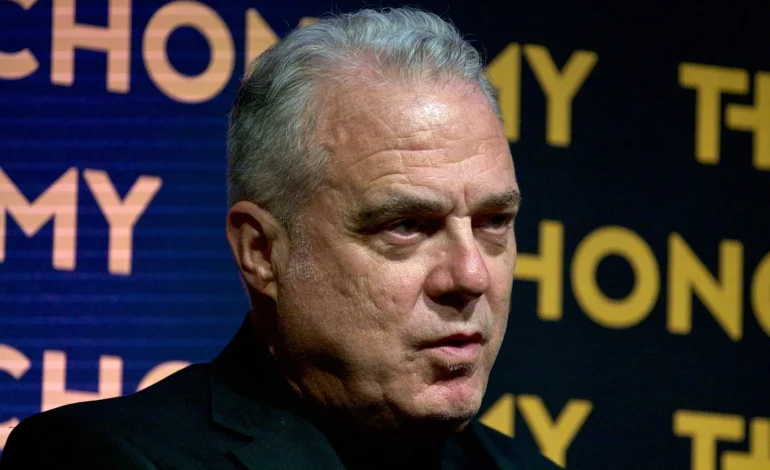Amid growing public frustration with the US healthcare system, Mark Bertolini, former CEO of Aetna and current chief executive of Oscar Health, has put forward a bold proposal: eliminate employer-sponsored health insurance, Fortune reports.
Bertolini argues that the 80-year-old model no longer serves modern healthcare needs and has become a costly, inefficient system that limits consumer choice.
Bertolini’s comments come in the wake of the tragic murder of UnitedHealthcare CEO Brian Thompson, which has intensified criticism of the healthcare industry’s high costs, complex processes, and inconsistent outcomes. Bertolini contends that the public’s anger is “justified,” especially as rates of claim denials rise and prior authorizations delay access to necessary care.
More than 60% of Americans under 65—about 164.7 million people—receive health insurance through their employers, according to the nonprofit Kaiser Family Foundation (KFF). For decades, this system has offered affordable insurance for workers and tax benefits for employers. However, the costs for employees have skyrocketed. According to U.S. Census data, the average premium for individual coverage increased from $4,940 in 2010 to $7,590 in 2022—an increase of over 50%.
Bertolini points to structural issues that have weakened employers’ ability to negotiate lower premiums. As insurers merge with physician practices and hospital systems, companies lose leverage. This is especially true for small- and mid-sized businesses, which have limited bargaining power against larger insurers.
“The companies have no leverage,” Bertolini explained in an interview with CNBC’s Squawk Box. “Healthcare has now become very individualistic: ‘I want it to be fit for me.’ And when my employer buys my healthcare coverage, they buy for the average.”
Bertolini’s proposal is straightforward: employers would still contribute to employees’ health insurance, but instead of placing workers in a group plan, they would provide financial support for employees to purchase individual coverage on the open market.
This approach would allow workers to choose plans that fit their specific needs. A young, healthy employee, for example, could choose a lower-premium plan, while an older worker with a family could opt for a more comprehensive option.
“Instead of defined benefit, you allow that employee, with some assistance, to understand what’s going on in their use of healthcare to get them into the right plan,” Bertolini said.
This system aligns with the business model of Oscar Health, where Bertolini currently serves as CEO. The company, co-founded by venture capitalist Joshua Kushner, targets individuals without employer-sponsored insurance through its marketplace plans under the Affordable Care Act (ACA).
Although Oscar previously partnered with Cigna to offer group insurance for small- and mid-sized businesses, it struggled to maintain this line of business. The company has since refocused on individual plans, reporting $54 million in losses last quarter. Despite financial challenges, Oscar insists it is “positioned for long-term growth,” touting its appeal to GOP ideals of consumer choice and free-market solutions.
The employer-sponsored health insurance system has its roots in World War II, when wage controls imposed by the Roosevelt administration forced employers to offer benefits like health insurance to attract workers. Congress later passed the Hill-Burton Act of 1946 to build more hospitals and support the expanding healthcare infrastructure.
These measures helped build the system that exists today, but Bertolini argues that it has outlived its usefulness. In 1940, healthcare spending accounted for just 4.5% of the US gross domestic product (GDP). Today, that figure has surged to nearly 20%, a strain that Bertolini says is no longer sustainable.
“We created both demand and supply increases that have not slowed since the population boom happened,” he said. “As you look at these changes over time, we’ve just outrun our ability to afford the way we do it.”
Critics of Bertolini’s proposal may point to the risks of leaving workers to navigate the complex world of health insurance on their own. Employer-sponsored insurance pools risk, ensuring that younger, healthier employees help balance the costs of older or sicker colleagues. Removing this structure could lead to price spikes for higher-risk individuals.
However, supporters argue that giving workers more control over their coverage could promote price competition among insurers, potentially lowering premiums in the long term. This model also supports the concept of consumer-driven healthcare, a long-standing goal of health policy advocates who favor market-based solutions.









